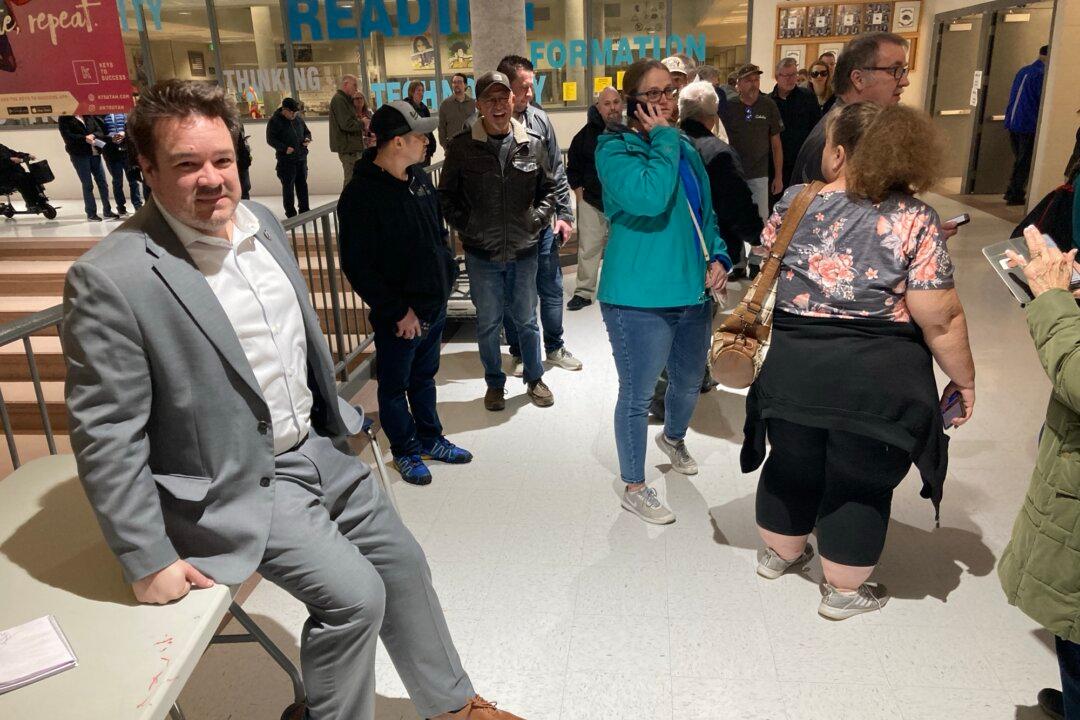WEST VALLEY CITY, Utah—As expected, former President Donald Trump has won the Utah Republican presidential poll to take 14 of 15 GOP Super Tuesday contests on March 5 against former South Carolina Gov. Nikki Haley.
The only real suspense anticipated in Utah’s March 5 caucus results was if President Trump would garner the statewide 50 percent-plus-one plurality to secure all of the state’s 40 Republican National Convention delegates.
As of 1:30 a.m. Mountain Time, he appeared well on his way to doing just that.
With 74 percent of precincts reporting early on March 6, the former president had secured 58.2 percent of the votes, amounting to 37,960 votes, compared to Ms. Haley’s 40.7 percent or 26,539 votes. It means President Trump extends his significant delegate lead, positioning him to potentially clinch the nomination as early as March 12.
The race had not been officially called as the clock neared 2 a.m. but Utah Republican Party chair Robert Axson told the few reporters who remained at the Utah Trucking Association headquarters in West Valley City, where the state committee staged its vote count, that “the numbers speak for themselves.”In Utah, if a candidate secures a 50 percent plus one tally, he/she takes all the delegates, unlike many early primaries that gauge plurality on a congressional district basis.
With Utah’s 40 delegates, President Trump now has 1,001 of the 1,215 he needs to win the GOP nomination and take on President Joe Biden in a rematch of their 2020 race in November. Ms. Haley, with her Vermont primary win, has 86 delegates.
President Trump has struggled in Utah in the past, losing in 2016 to Sen. Ted Cruz (R-Texas)—the last time Utah Republicans caucused rather than participating in a state-run presidential primary—before winning nearly 88 percent of the vote in 2020 against former Massachusetts Gov. Bill Weld, a former Libertarian presidential candidate who wasn’t even on many of the state’s ballots.
If he maintains his pace of nearly 60 percent, President Trump will surpass his most recent polling results in Utah. In a Dan Jones & Associates survey conducted from Jan. 16-21, which polled 428 Republican voters, he received 49 percent of the vote, Ms. Haley received 22 percent, and Florida Governor Ron DeSantis, who had just announced his withdrawal from the race, received 13 percent.
Many of Mr. DeSantis’ voters likely backed President Trump over Ms. Haley, lifting him to the 50-percent one plurality needed to bank all of the state’s 40 RNC convention delegates.





